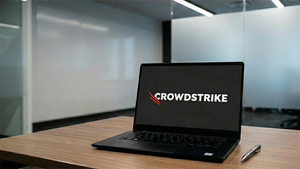LOS ANGELES, Feb. 14, 2024 (GLOBE NEWSWIRE) -- ACTG, a global clinical trials network focused on HIV and other infectious diseases, today announced the opening of study A5406 (Pharmacokinetics and Safety of Double-dose Dolutegravir When Used with Rifapentine for HIV-associated Tuberculosis). A5406 is a phase 2, open-label pharmacokinetic study investigating the effect that the anti-tuberculosis (TB) medication rifapentine has on levels of the HIV medication dolutegravir in the blood of participants who have HIV-associated TB and whether this combination can be safely and effectively used together.
Previously, ACTG study A5349 demonstrated that a four-month, four-drug TB regimen that included high-dose rifapentine was as effective as the standard six-month regimen, cutting the treatment time by one third. Because other research has found that levels of dolutegravir (a recommended first-line HIV treatment) are reduced when given in combination with rifamycin drugs such as rifapentine, there is an urgent need to define the magnitude of the drug-drug interaction.
“Understanding the relationship between these anti-TB and HIV medications is crucial, as an estimated one third of people living with HIV worldwide are at risk for developing TB,” said ACTG Chair Judith Currier, M.D., M.Sc., University of California, Los Angeles. “We are hopeful that this study will answer these outstanding questions and thus provide a roadmap for treating HIV and TB together.”
This single-arm, multicenter study will enroll 30 participants aged 18 years and older who are living with HIV, newly diagnosed with drug-sensitive TB, and not taking antiretroviral therapy (ART) at the time of their TB diagnosis. All participants will receive the following regimen:
- Daily high-dose rifapentine (1200 mg), moxifloxacin (400 mg), isoniazid (300 mg), and pyrazinamide (at standard doses adjusted for body weight) for eight weeks
Followed by:
- Daily rifapentine (1200 mg), moxifloxacin (400 mg), and isoniazid (300 mg) for 9 weeks
And:
- Dolutegravir-based ART twice daily, starting after six weeks of TB therapy
- Dolutegravir (50 mg) together with a fixed-dose combination of tenofovir disoproxil fumarate (300 mg) and lamivudine (300 mg), each morning
- Dolutegravir (50 mg) until two weeks after completing TB treatment, each evening
“While the shortened regimen is not yet part of routine care, it has been endorsed by health authorities as an equally effective and safe alternative to the standard six-month treatment,” said A5406 Protocol Chair Sean Wasserman, M.B.Ch.B., Ph.D., St George’s, University of London and the University of Cape Town. “We are hopeful that the results from A5406 will support the international roll-out of the shortened regimen, making it more accessible for those individuals at highest risk of TB.”
A5406 will take place at four sites in Thailand and South Africa. It is sponsored by the National Institute of Allergy and Infectious Diseases (NIAID), part of the National Institutes of Health (which also funds the ACTG) under award numbers UM1 AI068636, UM1 AI107716, and UM1 AI068634. Dolutegravir is being supplied to study A5406 by ViiV Healthcare Ltd and the fixed-dose combination of dolutegravir/tenofovir disoproxil fumarate/lamivudine is being supplied by Viatris.
A5406 is led by Dr. Wasserman and Richard E. Chaisson, M.D., Johns Hopkins University (Vice-chair). The ACTG is led by Dr. Currier and Joseph J. Eron, M.D., University of North Carolina (ACTG Vice Chair).
For more information about A5406, please visit clinicaltrials.gov.
About ACTG
ACTG is the world’s largest and longest running clinical trials network focused on HIV and other infectious diseases and the people living with them. It is funded by NIAID and collaborating NIH Institutes. Founded in 1987, the ACTG conducts research to improve the management of HIV and its comorbidities; develop a cure for HIV; and innovate treatments for tuberculosis, hepatitis B, and emerging infectious diseases. It comprises thousands of dedicated researchers, staff, and community members who are pursuing research into novel treatments and cures for infectious diseases at hundreds of locations across four continents, with the ultimate goal of advancing science that meaningfully impacts the lives of the people we serve.
Disclaimer: This content is solely the responsibility of the ACTG and does not necessarily represent the official views of the NIH.
Media Contact:
Jenna Conley, ACTG
jenna@conleycommunications.net







